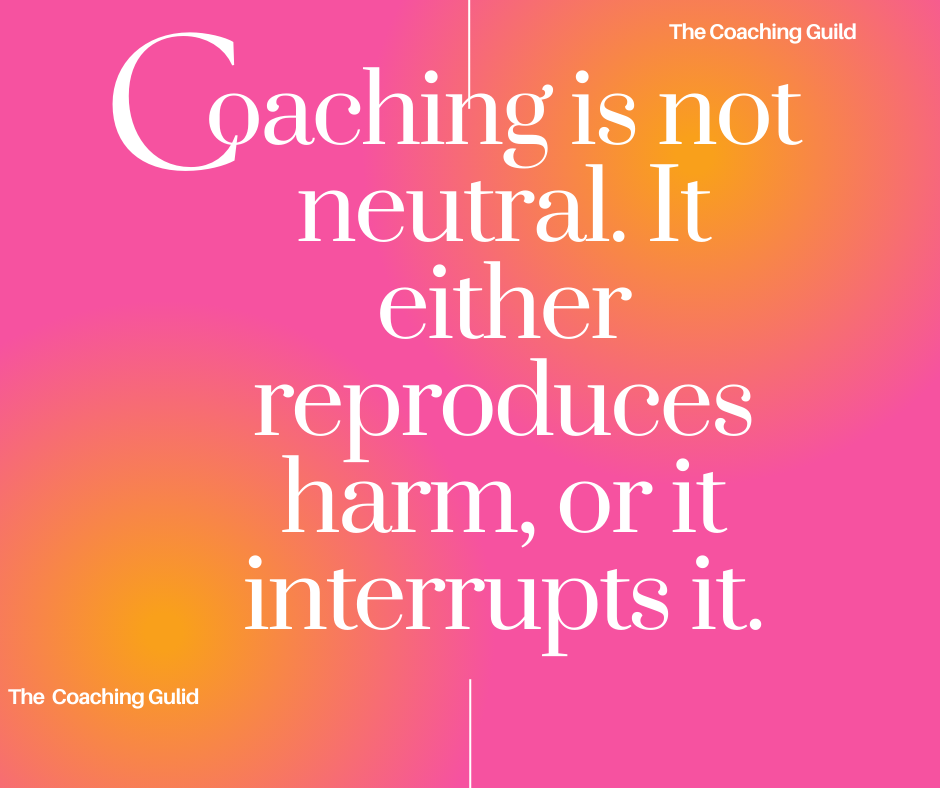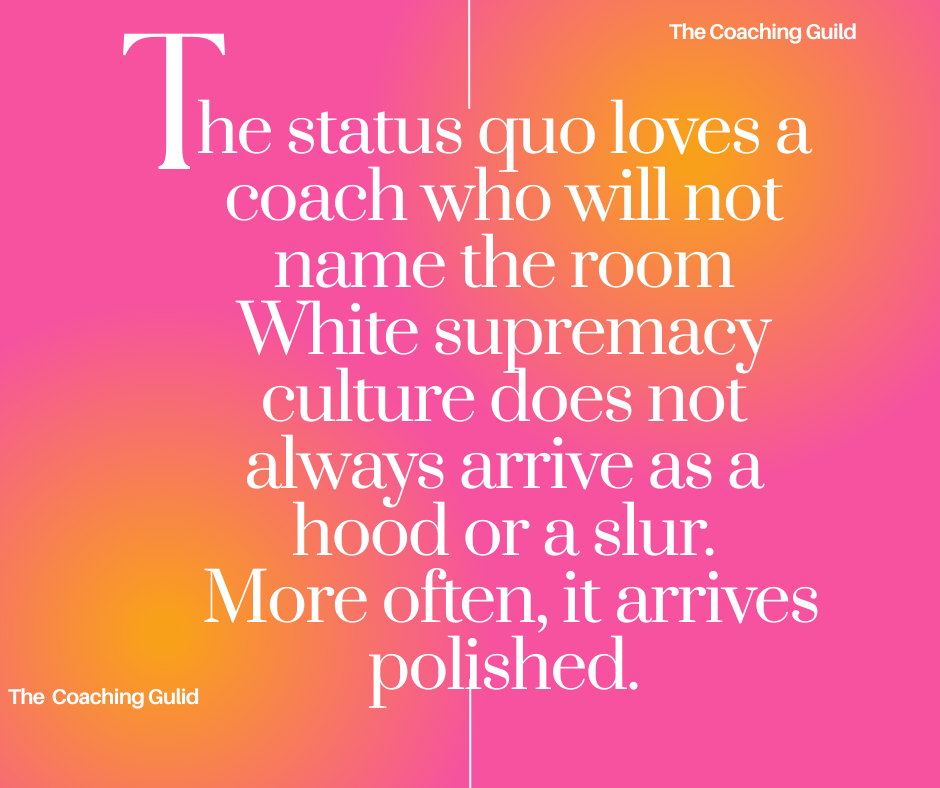Drama-free marketing is what’s happening at The Coaching Guild this week
Marketing doesn't have to be ick
Karen Hawkwood, (otherwise known as KJ Sassy pants) is taking center stage at The Coaching Guild this week. She is our marketing and visibility instructor. Karen is brilliant, soul-centered, both magical and practical. She is a force of nature.
Karen Hawkwood is a deep-diver into the human soul who also helps people make pragmatic and lasting changes. She is a certified Master Life Coach through Martha Beck, having taken coach training in 2012 and Master Coach training in 2015, and has had a client practice since 2013. She has been an ardent student of human nature since before she could walk, and paired that with a deep interest in Jungian/archetypal astrology in the late 1980s, which is a key component of her individual and group work.
Karen is also somewhat of a geek, and in addition to her private practice, she runs a small tech-set-up business to help entrepreneurs get the tech they need in ways that are neither scary nor ruinously expensive. She is funny, fierce, quirky, eloquent, insightful, and deeply devoted to helping people know who they really are and build lives and businesses around that.
Karen is teaching marketing genius at The Coaching Guild that flows straight through the heart of your business without any cringe-worthy marketing nonsense or formulaic copycat plans. More than anything else, she is helping our students find themselves in their work in meaningful, potent, and visible ways. When you structure your business in a way that reflects your soul, inviting people into your world to pay you money feels joyful instead of anxiety-inducing – additionally, it is effective.
A lot of coaches, both new and seasoned, have some very scary big feelings about the marketing process. Most coaches spend more money on marketing training than they do training to be a great coach and do it because they feel like they have to.
Complicated sales funnels
Carefully scripted “discovery calls”
Contant drips of social media sales posts
Webinar upsells that bait people into paying the big money
Search engine optimization and keyword-laden web copy
Emails, ezines, blogs, vlogs, longform posts, short-form video
I could go on.
If all this doesn’t have you hearing the base drop for the song Under Pressure, you are probably way younger than me. Even if you don’t know the song, you probably know the feeling.
I know some brilliant humans who bailed on their coaching businesses before they ever really got started because when you peek behind the scenes of our industry, a lot of the marketing practices look like a dumpster fire and smell like desperation. Although they wanted to coach, they just could not swallow what they thought would be required to fill a sustainable practice.
Fear of not being able to market and sell is the number one reason I hear potential coaches cite when they have decided not to pursue their dream of becoming a coach. Would be coaches are walking away from their true passion because they do not want to have to put themselves out there like bait and trick people into paying them money. They are afraid of failing, not because they wouldn’t rock it for their clients, but because they are terrified of the selling process.
Fear-based marketing is a double-edged sword. When a coach is terrified they will fail, they are very likely to engage in marketing that drills deep into pain points and capitalizes on the desperation of would-be clients looking for a savior, not coaching.
The problem with fear is you can smell it, and no matter how well-intentioned, it does not smell good to anyone. Ultimately it is not attractive. Trust me; you do not want to live in a business that feels like anxiety and will ripen into regret if you are not trying to trick people into falling onto your calendar day in and day out.
There is another way. There is a way of making yourself visible and available with intention and purpose. There is a way to market your coaching practice that feels like a welcoming invitation instead of hunting prey. There is a way to be so present for your people that welcoming them into your universe or ecosystem feels as natural as inviting someone you really like over for coffee to talk and deepen your relationship.
The bottom line is: There is a way to market that feels warm, honest, and build on relationships instead of feeling transactional or worse yet, predatory. Marketing a coaching practice should be nothing more than deep relationship building over time. Coaches are typically the kind of people who love to build meaningful relationships.
KJ Sassy pants is the kind of mentor that can help our students build a practice that feels organic, alive, engaging, both for the coach and their clients. She is setting our students up for the kind of ease most coaches who have been in the game for years only dream of. Like I said before, she is both magical and practical, and although this module has just started, I can already feel how powerful this work will be.
The bottom line is: If you do not love your marketing, you will not love your coaching practice. You are going to have to create pathways and bridges that people can find so they can work their way into your practice. That said, marketing doesn’t have to look and feel the way you think it does. If you start from the beginning building marketing rituals that are deeply satisfying, you will find your way to success as a coach without all the stress and strain most coaches force themselves to endure.
At The Coaching Guild we know the statistics. We know a lot of coaches start and fail. That is why we have included marketing as a part of our essential core curriculum. We are invested in the success of our students AND we know if you build the right foundation you don’t have to struggle to make your money. When you’re not struggling to make your money, it frees you up to love the work you’ve chosen.
If you are interested in coach training that sets you up for that kind of joy and ease, check us out at www.thecoachingguild.com.


